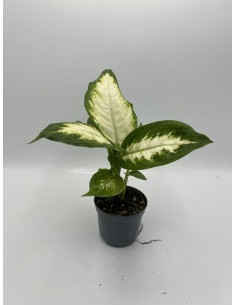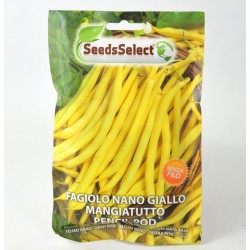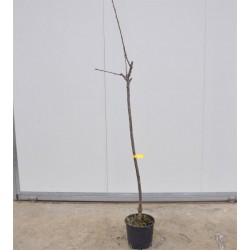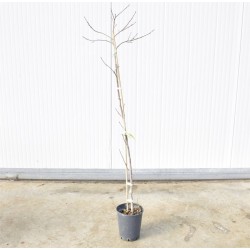Passiflora Quadrangularis Plant
Generalities Passiflora Quadrangularis plant:
The Passiflora Quadrangularis plants are evergreen creepers of South African origin, highly appreciated for their beautiful blooms and in some species for their edible fruits. They produce herbaceous or semi-woody stems, bright green in color, have large palmate leaves, the same color as the stems. During the summer they produce large white, lilac, blue or pink flowers, with a very particular shape.The fruit is formed by a gelatinous pulp that contains the seeds.
Online Sale Plant Passiflora Quadrangularis, available in the following formatsi :
- jar 7cm, height 5/15cm
- jar 18cm, height 60/80cm
Online Sale Plant Passiflora Quadrangularis, available in the following formats:
- jar 7cm, height 5/15cm
- jar 18cm, height 60/80cm
Generalities Passiflora Edulis plant:
The Passiflora Quadrangularis plant is a climbing plant for mild climates, with more or less jagged deciduous foliage that needs a support on which the plants are fixed thanks to the vines that develop along the stems. It has a burgundy red and white bloom, streaked with dark purple. It is recommended to plant the plant in sheltered and well-sunny places and on fertile and permeable soils. It fears negative temperatures, but can withstand -2 / -4 ° C.
In winter, as a precaution, it is better to protect the stump with straw or dry leaves. It is one of the most spectacular Passiflora but also one of the less rustic. It has large purple flowers with purple strands. It is called Quadrangularis because of the herbaceous stem with square profiles. It is also called Granadilla Reale. It produces the largest fruit of all the species of the genus Passiflora. Passionflower is usually used for the treatment and prevention of anxiety, anguish and insomnia due to agitation. Passion flower herbal remedies are very effective. One of their strong points is rapid action. They have a relaxing and sedative effect on the central nervous system. Herbal tea based on passionflower is prepared in the form of an infusion, and in case of anxiety, anguish or insomnia the consumption of two cups a day of the drink is indicated. As for preparation and quantity of intake, it is good to seek advice from a herbalist, who will be able to adapt the remedy to the health situation of each. Passionflower is considered a real relaxation herb, together with lemon balm, linden and valerian. Its calming action on the nervous system ensures a peaceful and awakening night sleep. Its antispasmodic action allows its use in case of problems due to muscle contractures, such as menstrual cramps. The intake of herbal preparations based on passionflower can be indicated to alleviate any ailments present during menopause. In herbal medicine it is possible to purchase the dried passion flower extracts necessary for the preparation of herbal teas. It can also be found in the form of a tincture or tablets. Passionflower is harvested in the middle of summer. For herbal purposes, the youngest leaves and branches are collected, but the properties of its fruits should not be underestimated. Passion fruit fruits are in fact rich in vitamin C and have a high refreshing power. They are usually referred to as maracuya.
Cultivation and Care Plant Passiflora Edulis:
Passiflora plants prefer well-lit and sunny locations, but they can develop without problems even in partial shade; slightly fear the cold. We regularly water the specimens that have just been planted or grown in a vase; long-lived specimens are generally satisfied with rainfall, although they may need watering in the event of prolonged periods of drought. During the cold season it is not necessary to intervene with the watering. If grown in pots, it is repotted practically every year, using a sandy and well-drained soil.



















